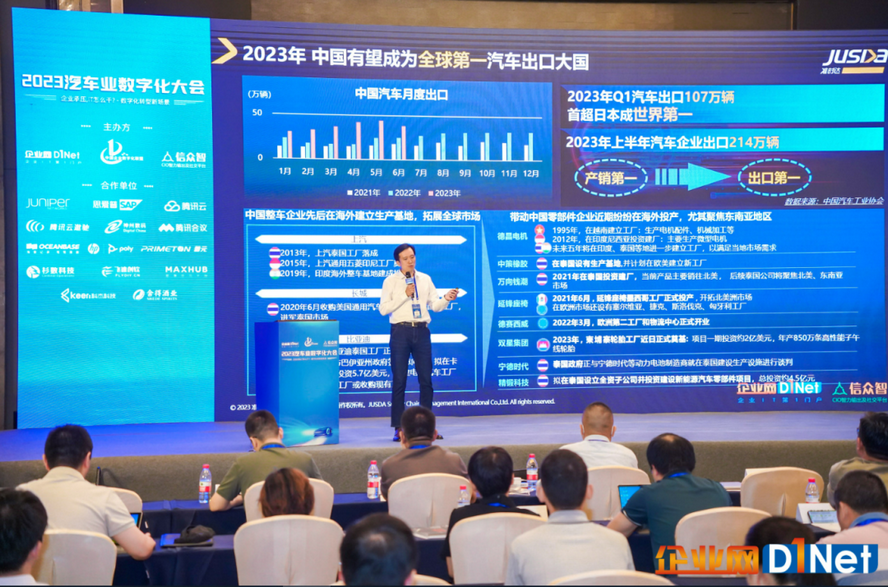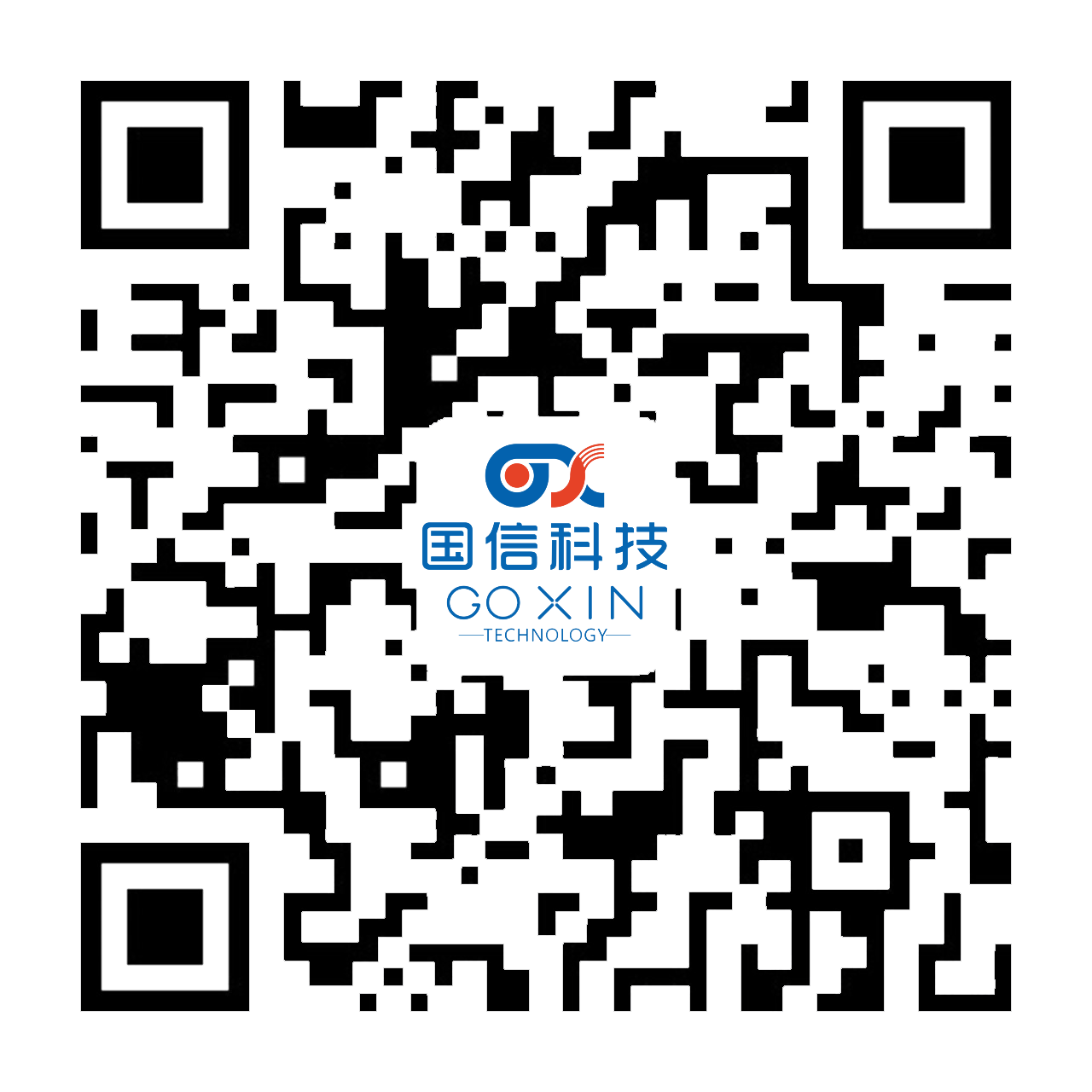Disruption and Rebirth: How can the integration of AI and digital supply chain empower global automotive supply chain innovation?
前海国信 DATE:2023-07-27 TYPE:Industry News
Disruption and Rebirth: How can the integration of AI and digital supply chain empower global automotive supply chain innovation?

With the vigorous development of the digital economy, the automotive industry is undergoing unprecedented changes. The leap from the traditional industrial era to the digital era has led to profound changes and reshaping of the global automotive industry landscape. The rapid breakthroughs in technologies such as the Internet, batteries, and AI artificial intelligence have provided strong impetus for the transformation and upgrading of the traditional automotive industry to the intelligent electric vehicle industry, and the trend of the new automotive era is becoming increasingly evident. However, it should be pointed out that in this industrial transformation, how to build a safe, controllable, more resilient, sustainable, and integrated new supply chain system at the intersection of electrification and intelligence has become a key task for China's automotive industry to participate in the next stage of competition.
Opportunities for globalization of the automotive industry chain
In the context of today's global economic integration, China's economic development has shown a series of new characteristics and trends. Among them, the rapid development of traditional foreign trade, especially the export of the automotive industry, has become an important highlight, thanks to the entire supply chain of the automotive industry, which is rapidly globalizing from vehicle factories to components. Unlike the past dependence on domestic suppliers, Chinese automotive companies have also successively built production bases overseas, expanded global markets, and driven related component companies to put into production overseas. They are closely connected to the automotive industry chain around the world, forming a global supply chain system.
At present, Chinese manufacturing is in a turning period, and "going global" has become an inevitable choice for enterprises under the wave of the times. As the automotive industry moves outward, the industry supply chain inevitably needs to change along with it. As Lv Taixin, CTO of Jijida, said at the 2023 Auto Industry Digitalization Conference, "With the disappearance of China's Demographic dividend and the improvement of infrastructure, China's economy has entered a period of low growth. The overseas blue ocean market has become a necessary direction for Chinese enterprises to seek growth. It also puts forward higher requirements for the transformation from" Made in China "to" Made in China ", and further accelerates the demand for digital upgrading of the supply chain."
Despite the slowdown in China's economic growth, the automotive industry has ushered in opportunities for development in this era. Especially in some emerging market countries, Chinese automotive products have strong competitiveness, which brings new development opportunities for Chinese enterprises, especially in the automotive manufacturing industry. Therefore, in this process, Chinese enterprises need to continuously adjust their strategic layout, optimize supply chain management, improve product quality and technological level, in order to achieve sustainable development.
Hit the pain points of the automotive supply chain directly
For a long time in the past, the benchmark companies in the automotive industry may have been Toyota, with the most important being the Just In Time (JIT) production method, which emphasizes zero inventory and cost reduction. However, with the development of electronics and intelligence, the demand for electronic components such as chips in the automotive industry is gradually increasing, which poses greater challenges to supply chain management. While pursuing supply chain efficiency, enterprises also need to pay attention to inventory management to avoid production stagnation and losses caused by raw material shortages.
With the development of globalization, the supply chain of enterprises has expanded from domestic to international. This makes the management of the supply chain more complex, requiring collaboration and information sharing at all stages. When facing international supply chains, enterprises need to deal with a series of issues such as customs clearance, sea freight, and destination distribution, which puts higher requirements on their planning and management capabilities. In addition, in a continuously growing supply chain, the control and responsiveness of enterprises to problems may decrease. Due to the long time span of the supply chain, the possibility of alternative solutions is reduced. Enterprises need to improve the flexibility of the supply chain and its ability to respond to anomalies to reduce the cost increase caused by abnormal situations.
In order to address the pain points mentioned above in the industry, the consensus is to build a new automotive supply chain management model and coordinate development to solve the problems. Automobile companies need to integrate supply chain management and achieve full monitoring from placing orders to receiving goods. In addition, it is also necessary to use intelligent means, such as Big data, artificial intelligence and other technologies, to conduct real-time analysis and optimization of the supply chain, and improve the efficiency and stability of the supply chain. In addition, in the global supply chain, enterprises may also face various uncertain factors, such as policy changes, natural disasters, supplier failures, etc. It is necessary to establish a comprehensive supply chain risk management system, and provide early warning and response to potential risks to ensure the stable operation of the supply chain.
The automotive production supply chain faces a series of complex supply chain nodes from raw materials, components, production, brand manufacturers, and end customers. The automotive industry has a "just in time" production mechanism, and the core components are mainly foreign aid, accounting for 90% of the market share, with less than 5% domestically produced. This determines that once it encounters a black swan, the domestic supply system can only face shutdown and production stoppage. It is imperative to build a new model of automotive supply chain management In the view of CTO Lv Taixin of Jijida, when enterprises focus on the supply chain, they not only need to pay attention to cost and inventory management, but also need to pay attention to supply chain collaboration, flexibility, responsiveness, integrated management, and intelligent methods.
Under the global layout demand, the supply chain is facing a big challenge
In terms of technology empowerment, JusLink, created by Jijida, uses an AI driven collaborative smart supply chain management system to help enterprises solve supply chain management pain points, assist manufacturing enterprises in entering a comprehensive intelligent development stage, and possess advantages and capabilities such as end-to-end supply chain visualization and supply chain collaboration. JusLink Digital Supply Chain Solution provides a fully integrated system solution for the entire process from purchase order creation to delivery, end-to-end, and visualized supply chain management, including PO management, transportation management, inventory management, and exception management. By accumulating a large amount of data, based on data analysis, it helps customers improve supply chain management and enhance supply chain efficiency.
AI Disrupts Traditional Supply Chain
In recent years, with the continuous development of artificial intelligence technology, the application of AI in the supply chain field has become increasingly widespread. According to a report by Daimo Bank, AI is expected to eliminate all "human work" in the future, overturn the traditional operation of the supply chain, thereby improving efficiency and reducing costs.
Previously, when Alibaba launched the "Tongyi Qianwen" big model, Zhang Yong mentioned, "The emergence of AI big models is a milestone that marks an era, and humanity will enter a new era of intelligence. Just like the Industrial Revolution, big models will be widely used in various industries, bringing huge productivity improvements and profound changes to our way of life. In the future, all products are worth redoing with AI
So, how can AI overturn traditional supply chains? Firstly, automate the process. AI can automate many traditional supply chain processes that require manual processing, such as order processing, inventory management, logistics tracking, etc. It not only improves efficiency but also reduces error rates, making the entire supply chain more reliable. Secondly, data analysis, AI can provide more accurate predictions and decision support by analyzing a large amount of data in the supply chain. For example, AI can predict demand based on historical data and current trends, helping enterprises better plan production and procurement plans. Thirdly, artificial intelligence robots. AI robots can replace humans to complete repetitive and tedious tasks such as logistics, picking, packaging, etc. This not only improves efficiency, but also reduces labor costs and error rates. In short, every link in the entire supply chain will be affected by AI, and even some work will be replaced by AI, or some disruptive patterns will be created to combine AI with the original artificial intelligence.
The application of AI in the supply chain, taking the JusLink technology platform as an example, has created a new AI product - JusAI intelligent dialogue engine. This product integrates a big language model and subverts the traditional logistics operation mode. Users can obtain the required services accurately, quickly, and low-cost through a window, one click Q&A, and a list of all conversations with robots. The JusAI intelligent dialogue engine has been launched, JusAI intelligent customer service provides customers with a brand new and ultimate service experience, opening the door to a new world of intelligent supply chain management.
In addition to the big language model, in fact, JIJIDA is also trying to combine traditional machine learning models with algorithms. In terms of cooperation between industry, academia, and research, the collaboration project between JIJIDA and Ningbo MIT Ningchuang College's AI dynamic ETA intelligent algorithm, which was just released last month, has also made significant progress. In terms of dynamic ETA intelligent algorithms, JIJIDA integrates massive ship data through machine learning, neural network models, dynamic/static prediction models, model training, and ETA prediction models to achieve more accurate prediction of destination port arrival time, which can significantly improve the operational efficiency of the supply chain; The use of the 'dynamic ETA algorithm' can provide more timely and accurate warning of logistics anomalies, improve operational efficiency, reduce operational costs, and avoid the risk of supply chain interruption.
Future Trends: Cross border Cooperation and Development
In today's world, the rapid development of technology and the continuous adjustment of industrial structure have posed enormous challenges to many traditional industries. As one of the world's largest manufacturing industries, the automotive industry is facing a huge impact from emerging technologies such as electric vehicles and autonomous driving. With the transition from gasoline powered vehicles to electric vehicles, more and more car manufacturers are seeking new technologies, partners, and business models to adapt to this new market full of challenges and opportunities. In this process, cross-border cooperation and development have become the future trend of the automotive industry.
Foxconn Group, as one of the world's largest electronic manufacturing service providers, has been paying attention to the development trends of the automotive industry. In order to seize this historic opportunity, Foxconn's parent company, Hon Hai Group, has set a strategic goal of "3+3" in the past few years. The three future industries are electric vehicles, Digital health and robots. The three core technologies are artificial intelligence, semiconductor and new generation communication. Lv Taixin stated that Jijida, as a subsidiary of Foxconn Group that focuses on supply chain management, is committed to providing customers with efficient and reliable digital intelligent supply chain integration solutions. In order to help achieve the strategic goal of "3+3", Jijida has also started conducting extensive research and services in the automotive industry, especially in the supply chain related to automobiles. In the automotive industry, JITDA mainly provides full process supply chain services from raw material procurement, production and manufacturing to product sales for automobile manufacturers, helping customers reduce costs, improve efficiency, and achieve sustainable development.
The source and source of this article have been marked, and the copyright belongs to the original author. For reprinting, please contact the original author. If there is any infringement, please contact us.
The article is sourced from the Internet of Things

了解更多资讯
关注国信科技
联系电话:0755-8323-5897
官方网址://www.guoxinkeji.com.cn
长|按|二|维|码|关|注
前海国信






